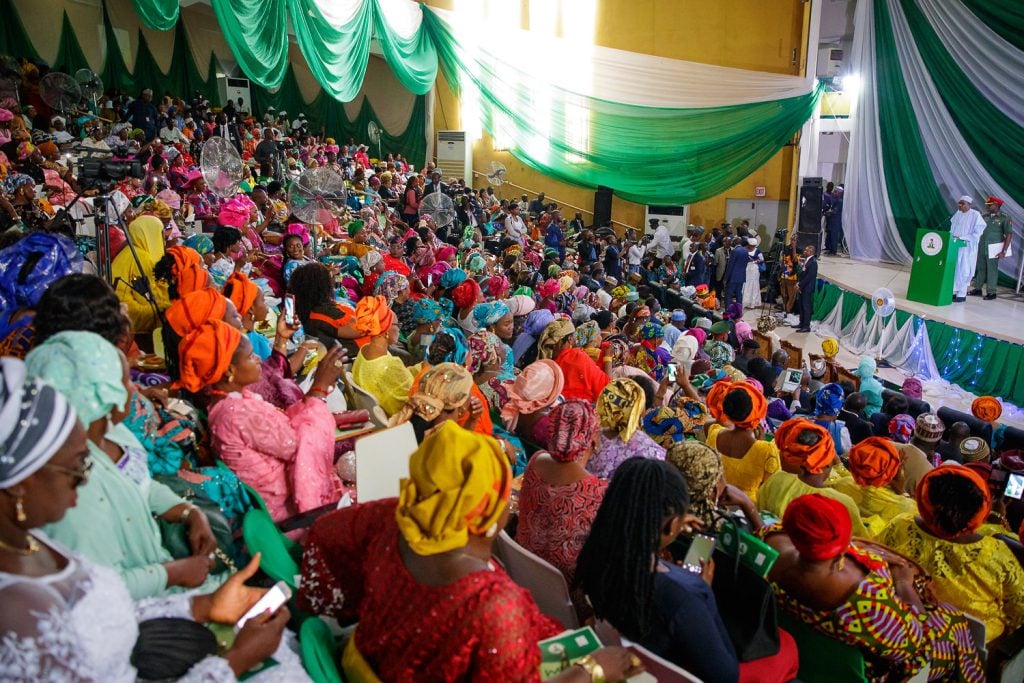With the 2023 general elections over, female politicians failed to secure a good number of seats across the country.
Despite their efforts to break even, Nigerian women in politics still face a tough task of competing with their male counterparts.
Many women interested in occupying elective political positions have disturbing tales on how their efforts are frustrated.
“We were asked to pick the party nomination forms free of charge; that it was a way of encouraging women to occupy elective positions, that was what made me to pick the form for a counsellor in 2011 which marked the beginning of my sorrow,” Mercy Godwin, a native of Uruan, Akwa Ibom State, Nigeria narrates to DAILY POST how her ordeal started in politics when she vied for the office of a councillor in Northern Uruan ward 2.
Madam Mercy popularly called “Meme” who should be in her late 50s narrated in a tremulous voice, “we (female aspirants) were later asked to pay the sum of N10,000 ($21) which I paid immediately because that was nothing to me. But the truth is that, what is involved is more than giving women the free forms. We were suffocated, discriminated against. The cost of campaigns (printing of posters, T-shirts, flyers etc) and consultations was overwhelming.
“I sold my landed properties and went ahead to get a loan from a Micro finance bank just to finance the elections because no one was willing to support me financially, I shouldered all the responsibilities alone.
“No one listened to me, neither did anyone wanted to know what my manifesto entailed without me first of all presenting drinks and cash, even my fellow women. I had to buy bags of rice, wrappers etc to consult them.
“I also had a problem of ‘godfather.’ I did not have any godfather and I was just moving on my own thinking that I will win the election as they made me feel, anywhere I went to, people were already hailing me, ‘honourable.’”
Meme narrated that having spent over a million Naira just for consultations and having sleepless nights for political meetings, she did not win the elections because she was told by the men in her community that she has married outside the area and should go to her husband’s local government to vie for political office and not her father’s house.
Also one Udeme Ekpo, who hails from Etim Ekpo said she nearly picked a nomination form of the All Progressives Congress for the 2023 elections because the cost of the form was slashed for women but when she was schooled of what was involved and other people’s experience, she had to back out as she was not getting much financial support from people.
DAILY POST reports that the turnout of women occupying elective positions at the end of every election in Nigeria since the democratic dispensation in 1999 has not been very impressive despite the critical role they play during the election process.
The low turnout, however, is not just because of their apathy to politics but has more to do with unfavourable terrain they are left to grapple with.
Speaking with the Chairman, Centre for Human Rights Accountability Network (CHRAN) in Akwa Ibom State, Franklyn Isong, who is also a political analyst in the state, he regretted that male politicians only seek the services of women for a token during political rallies and drop them at the end of the exercise, wait till another political year when they will be useful to them again.
According to him, “It is annoying that every campaign rally must be populated by women of different age brackets, their presence is almost indispensable, they’ve been christened ‘occasion women’, adorned with colourful uniforms and headgears singing praises during party activities.
“All the men in politics want them to grace their political outing not just because of the beauty they exude, but their voting strength and population, yet their representation in the elective capacity is nothing to write home about.”
Looking at the available records of women occupying elective or even appointive offices, the attainment of the 35% affirmative action proposed by the National Gender Policy is still a far cry in Nigeria, the 36 States inclusive.
A report by the Gender Strategy Advancement International showed that women’s political participation in Nigeria remains 6.7% which falls below the global average of 22.5%, African regional average of 23.4% and West African sub regional average of 15%.
This ranks Nigeria 181 out of 193 countries on the equality index for countries with low women representation in governance







